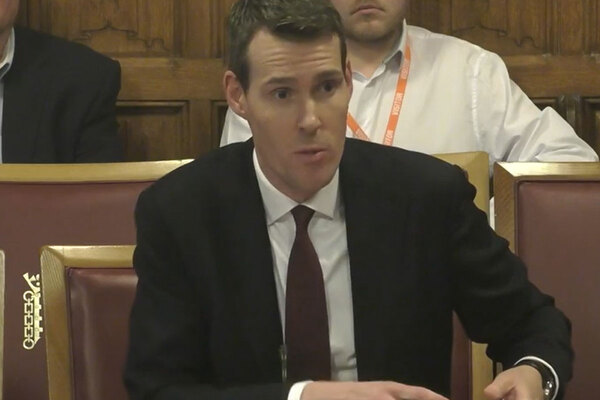Planning the future
Last month’s spending review handed social landlords much-needed certainty, but will the announcements - along with the multitude of recent government reforms - help or hinder development? Inside Housing and Galliford Try gathered a panel of experts to find out. Martin Hilditch reports
Just when it seemed that nothing in the social housing world could be said to be certain apart from bad debt and bedroom taxes, the government unveiled last month’s spending review.
In one swoop the coalition introduced a new rent settlement - albeit on less generous terms than the current one - and announced a further £2.9 billion round of the affordable homes programme. It also found time to announce that a cap will be placed on the total amount the government spends each year on benefits from 2015. In the same week, Welsh local authorities were told they would be freed from the current housing subsidy system. Throw in a few old favourites such as help to buy, planning and welfare reform and an English regulator that’s flexing its muscles like a youthful Arnold Schwarzenegger (think Kindergarten Cop, not Terminator) and social landlords could be forgiven for fancying a bit of a breather.
Taken as a whole, however, are housing providers in this new world feeling penned in by the reforms or reinvigorated by the greater certainty offered to them?
In a bid to answer this question Inside Housing, in partnership with house builder Galliford Try, gathered a panel of experts from across the sector - and they certainly didn’t sit on the fence about the likely impact.
Market stimulation
Help to buy, which came into effect on 1 April and involves the government lending a buyer up to 20 per cent of the value of a new build home if they have a minimum 5 per cent deposit, is one of the first areas to spark debate. It’s an initiative that has been welcomed like a skunk in a lift in some quarters, because of its perceived potential to create an unsustainable house price bubble. It has some fans in the housing industry though.
‘Initiatives like help to buy have stimulated activity,’ states Ingrid Reynolds, director of housing and public sector at consultancy Savills. ‘We may say it is also dangerous [in] stimulating price increases but certainly it’s providing a welcome boost to activity and confidence.’
Stephen Teagle, managing director of the affordable housing and regeneration division of Galliford Try, is another enthusiast. Thirty per cent of its sales since 1 April have been ‘through the help to buy route’, he states. ‘The extent to which help to buy has stimulated the market is terribly important,’ he adds. ‘That has helped to support what is a much more positive customer sentiment at the moment.’
But Robin Tetlow, director of Tetlow King Planning, is more cautious about the initiative. ‘It is not actually solving the affordability problem, which is getting worse,’ he states.
As a planner, Mr Tetlow says he is concerned about how few local authorities have a long-term vision for meeting housing need in their areas - which, he suggests, means housing problems continue to worsen.
In the short-term, however, local authorities’ lack of preparation is actually helping some housing schemes get off the ground, he states. This is because the national planning policy framework, published in March 2012, insists that landlords must have an up-to-date local plan.
‘We are certainly being able to utilise the NPPF to good effect to get permissions we wouldn’t otherwise have got,’ Mr Tetlow states. This is because the NPPF states that without a current local plan the presumption of planners must be in favour of ‘sustainable development’. ‘Local authorities that don’t have one are in trouble,’ Mr Tetlow adds.
Mr Teagle is also not sure that councils are doing enough to bring forward land.
‘The rate of public land release interests me a great deal,’ he states. ‘I believe there is far more among local authorities that can be released. I would be very interested to see if there is a way of hypothecating some growth funding back to local authority land releases and whether that would tease them to go through their assets in a more integrated way.’
Some councils are taking a very active lead in helping bring forward housing, though - in fact, one of the chief movers in this field is sitting at the table. Warrington Council has made a name for itself over the past few years by lending money to housing associations to help them develop homes. Danny Mather, corporate finance manager at the council, says it has a £380 million facility in its capital programme over the next three years to give loans to social landlords.
Mr Mather does have a word of warning for the housing association sector, however.
‘I have seen quite a lot of balance sheets over the last few months,’ he states. ‘Some are very, very strong and are very well managed organisations. But other social landlords to me have a very weak financial position. I have seen those with balance sheets where most of the debt is short-term, involved in very risky treasury instruments.’
Such landlords are not ‘a good bet’ and Warrington Council ‘wouldn’t touch them’, he states.
Mixed messages
Like many in the sector, some of the social landlords around the table are mildly frustrated with the mixed messages coming from the Homes and Communities Agency - which, in various guises, both funds and regulates the sector.
Kevin Hartnett, business development director at Hastoe Housing Association, says on the one hand investment teams are ‘encouraging us to take risks and be innovative and really push our assets and sweat our balance sheet and then the regulation team come in and say “that looks quite risky”.’ ‘It’s a bit of a tension,’ he adds.
Sean Egan, director of new ventures at Home Group, says the difference between the regulatory and investment arms is so pronounced it’s like one member of HCA staff ‘is telling you to do one thing and the guy in the other room is telling you to do another’.
What about the aforementioned spending review, though? Has the combination of grant funding and a rent formula set for 10 years from 2015 brought landlords more certainty?
Gavin Redfern, partner at architects Stock Woolstencroft, thinks so. ‘It was really important because a lot of organisations have had to work around a zero grant scenario,’ he states. ‘I imagine most of those organisations are relieved and adjusting their existing scenarios.’
Despite the certainty over funding, however, Origin Housing’s chief executive Karen Wilson is concerned about the impact of the forthcoming annual welfare cap.
‘It is great we have a 10-year rent settlement,’ she states. ‘The question is to what extent benefits and rent are going to move out of line with each other. Certainly we are having a rethink because rents we calculated as being affordable for people under affordable rents were when we thought rents and benefits were going to stay in line with each other. I think that also begins to challenge the rent settlement and says “does the rent settlement really deliver what looks like a reasonable amount of capacity for us to invest in new homes?”.’
What do the sector’s funders think though? Tony Oakley, relationship director in the social housing funding team at Lloyds Banking Group - which has a £13 billion social housing loan book - says it is particularly interested in the regulation of the sector and welfare reform which ‘have created an uncertainty, certainly in the minds of our credit colleagues, that hasn’t existed before’.
‘It is making them ask questions when we are looking at new proposals,’ he states.
The notorious near-collapse of Cosmopolitan Housing Association over the last year has also ‘brought to the fore that if there was a recovery situation, how would we get ourselves out of jail?’ he adds.
One landlord that certainly has ambitious plans is 11,000-home Welsh association RCT Homes, which has entered into a strategic partnership with developer Bellerophon and secured £1 billion of institutional finance to ‘in principle’ fund up to 11,000 new homes.
‘We hope to sign the first limited liability partnership at the end of this month that will bring 200 units on,’ its chief executive Andrew Lycett states.
Despite its ambitions, there are still major challenges for Welsh associations, he adds. ‘We haven’t yet had a settlement on rent increases for future years,’ he states. ‘It tends to get settled on an annual basis. We are looking at the consumer price index plus 1 per cent [the settlement English landlords received in the spending review] and thinking that it looks like a good deal with regards to certainty.’
Which goes to show that a little certainty can go a long way. If the government and HCA can couple this with consistency of approach then the sector might really get somewhere.
The panel

Gavin Redfern, partner, Stock Woolstencroft
‘A lot of organisations have had to work around a zero grant scenario. I imagine most of those organisations are relieved [by the outcome of June’s spending review].’

Tony Oakley, relationship director, social housing funding team, Lloyds Banking
‘Some of the challenges registered providers have faced around regulatory changes and welfare reforms have created an uncertainty that hasn’t existed before.’

Karen Wilson, chief executive, Origin Housing
‘For people who live in Hertfordshire, there’s an interesting suspicion that new housing goes to “those people from London”.’

Robin Tetlow, director, Tetlow King Planning
‘You might not think [long-term planning] matters - but it does if you are looking over long-time horizons with urban extensions and new settlements. If you are going to deliver big numbers you have to look at those solutions.’

Ingrid Reynolds, director of housing and public sector, Savills
‘Initiatives like help to buy have stimulated activity. It’s providing a welcome boost to activity and confidence.’

Sean Egan, director of new ventures, Home Group
‘It is felt that it is not our core purpose to deliver private rent. Outright sale is ultimately [the] end game to generate surpluses to deliver for our customers in need.’

Stephen Teagle, managing director, affordable housing and regeneration division, Galliford Try
‘The rate of public land release interests me a great deal. I believe that there is far more among local authorities that can be released.’

Danny Mather, corporate finance manager, Warrington Council
‘We only want to invest in organisations we think have a future and are commercially viable going forward.’

Kevin Hartnett, business development director, Hastoe Housing Association
‘Borrowing is one part of the [development] equation. The other part is subsidy. That subsidy is either grant or profits from market sale and that’s the bit we need to be careful about getting right.’

Andrew Lycett, chief executive, RCT Homes
‘There isn’t a large intermediate rent product in Wales at the moment. I think over the next few years we will see a real explosion as grant rates and grant availability reduces.’












